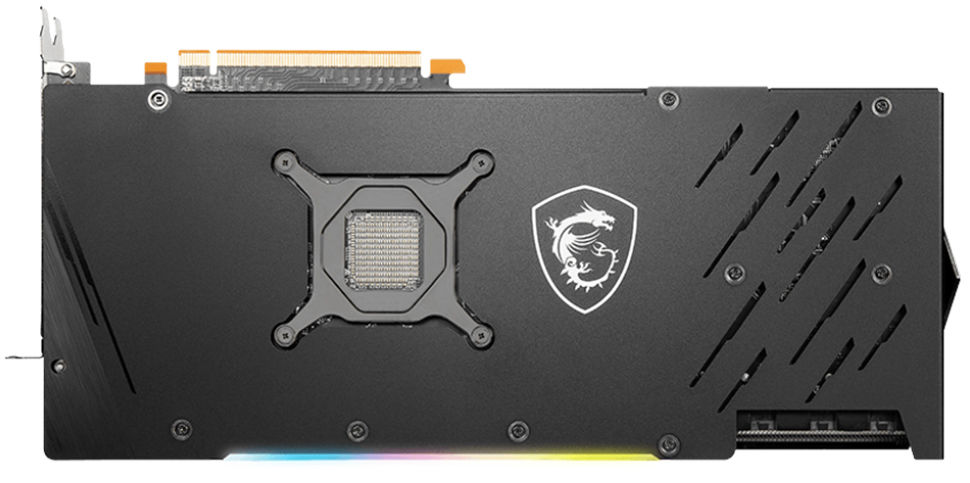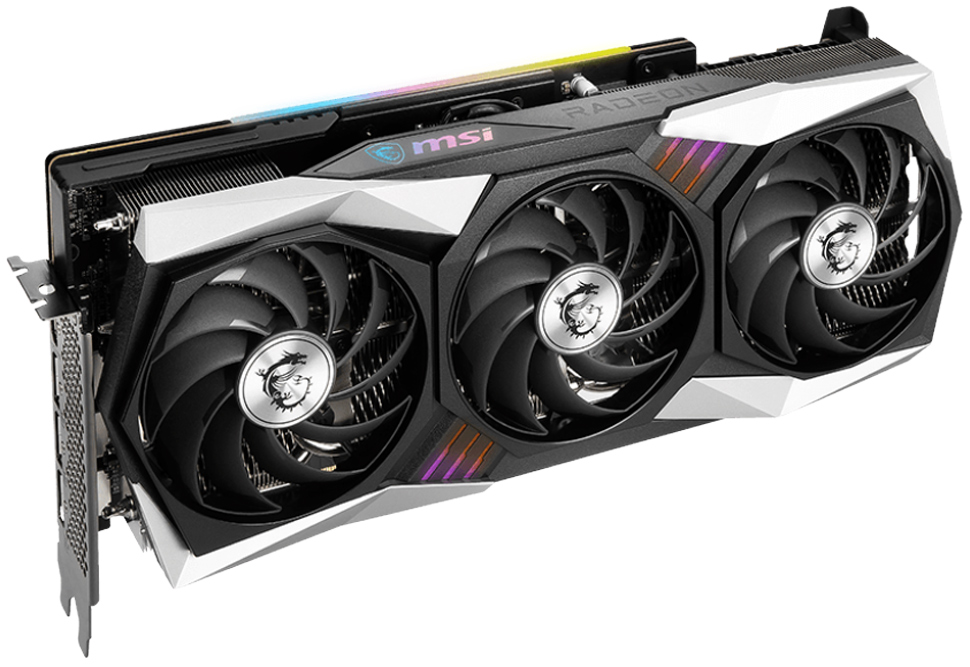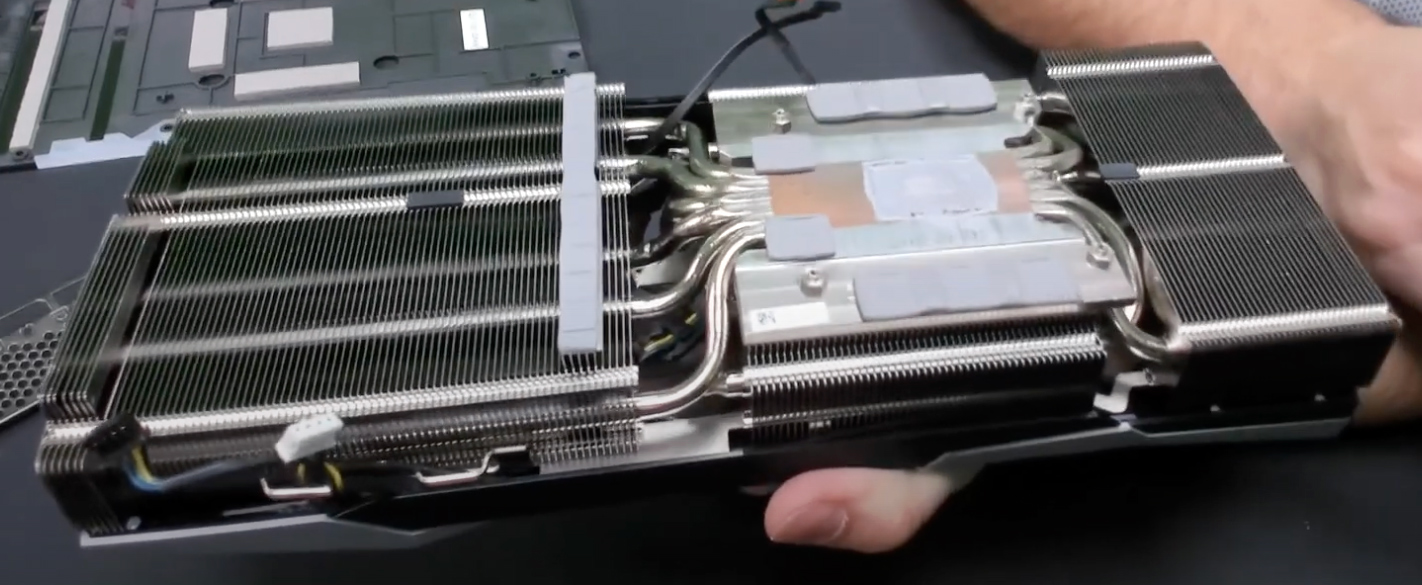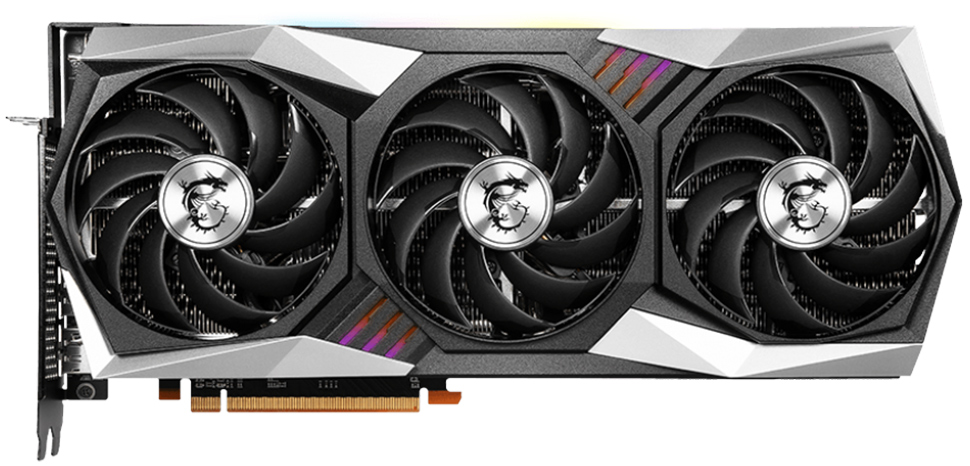MSI Launches Radeon RX 6900 XT Gaming X Trio: 2.34 GHz, Three Power Connectors
MSI's Radeon RX 6900 XT Gaming X Trio officially introduced.
MSI this week officially launched its top-of-the-range AMD-based graphics card, the Radeon RX 6900 XT Gaming X Trio 16G, which it showcased first in late December. The board uses a custom design and comes with a massive cooling system in a bid to maximize its overclocking potential. To feed the beast, its owner will need a PSU that will deliver it up to 300W of power to the board.
MSI's Radeon RX 6900 XT Gaming Trio lineup includes two models: the RX 6900 XT Gaming Trio 16G and the RX 6900 XT Gaming X Trio 16G. Both cards use the same printed circuit board (PCB) design featuring a 16-phase voltage regulating module (VRM) as well as a massive 2.7-wide Tri Frozr 2 cooling system with six heat pipes that interconnect several aluminum heatsinks, three Torx 4.0 fans, and has a backplate. Both cards require three eight-pin power connectors and have four display outputs (three DisplayPort 1.4 connectors and one HDMI 2.1 port).
The non-X version of the boards features a game core clock of 2,015 MHz and a boost clock of up to 2,250 MHz. The maxed-out X version comes with a game frequency of 2105 MHz as well as a boost clock of up to 2,340 MHz, which makes it, on paper, one of the fastest air-cooled Radeon RX 6900 XT graphics card available.
Like other MSI's Gaming series graphics cards, Radeon RX 6900 XT Gaming Trio are designed with overclocking in mind. To that end, they will need a spacious PC chassis as well as a powerful PSU to feed the product with enough juice.
MSI says that its Radeon RX 6900 XT Gaming Trio lineup will be available starting early February worldwide. Given today's situation with availability of GPUs and add-in-cards, MSI does not disclose MSRPs of its new product family as real-world prices will depend on actual supply.

Get Tom's Hardware's best news and in-depth reviews, straight to your inbox.

Anton Shilov is a contributing writer at Tom’s Hardware. Over the past couple of decades, he has covered everything from CPUs and GPUs to supercomputers and from modern process technologies and latest fab tools to high-tech industry trends.


